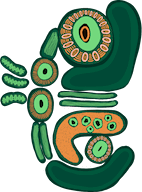
Keeping your teeth safe these holidays
Nobody wants to have a medical emergency, including those of a dental nature. Emergencies tend to happen without planning, and often at the most inconvenient times. Fortunately, all of our centres provide emergency dental care, which helps to minimise trauma, reduce infection risk and improve the chances of saving teeth. Check here to make an appointment for emergency dental care.
What does a dental emergency involve?
A dental emergency generally involves some type of trauma, infection and/or pain, involving the teeth or mouth. Often, accidents are the cause for a dental emergency, though toothache can also be a reason to see a dentist as soon as possible.
What are some common dental emergencies?
It is often unclear what constitutes a dental emergency, especially when not all dental trauma is obvious. However, it’s always worthwhile to book an appointment as soon as possible after any dental injury.
- A knocked-out tooth.
- Trauma to the teeth e.g., being hit in the mouth or falling on the face.
- Toothache or mouth pain.
- Gum or facial swelling. An abscess can cause swelling and an unpleasant smell or taste.
- Teeth with chips, fractures and cracks. These can often cause pain when eating and drinking.
- Badly bitten lips or cheeks.
- Pain in the jaw.
- Denture repairs.
First aid for dental emergencies
It can be helpful to know what to do in the case of a dental emergency. There is often a critical window of time in which a tooth can be saved and to reduce the risk of complications.
- See a dentist immediately – ideally, within 30 minutes after any dental injury.
- If a tooth has been knocked out, pick it up by the crown, rinse it with milk, or (very briefly) for 1-2 seconds in tap water. If you don’t have any water or milk with you, gently suck the tooth clean before gently placing it back into its socket.
- Place the tooth back into its right position in the mouth. Bite down on a tissue or soft cloth to hold it in place. If you can’t do this, take the tooth and any broken portions with you to the dentist.
- If a tooth has been knocked out, keep it moist by placing it in some milk, never in water. You could also wrap the tooth in clean plastic wrap.
- Don’t hold the tooth by its roots or wrap it in tissue. The key is to keep it moist.
Dental emergency prevention
It’s not always possible to prevent dental trauma. However, there are a few practices which can help to reduce the risk:
- Care for your teeth every day. Daily dental hygiene with brushing and flossing helps to maintain oral health and reduce the risk of dental emergencies.
- Wear a custom fitted mouthguard if you are playing sports. Even during training sessions it’s important to wear your mouthguard.
- Avoid biting down on hard foods. It’s easy to crack or chip teeth by biting or chewing on hard lollies, tough meat, nut shells and even ice.
- Never use your teeth as ‘tools’ to open packages or lids. Teeth are not designed to withstand the forces needed to open containers.
- Avoid chewing on pen lids, toothpicks and other foreign objects. Sugarless gum can satisfy a chewing urge without risking dental trauma.
